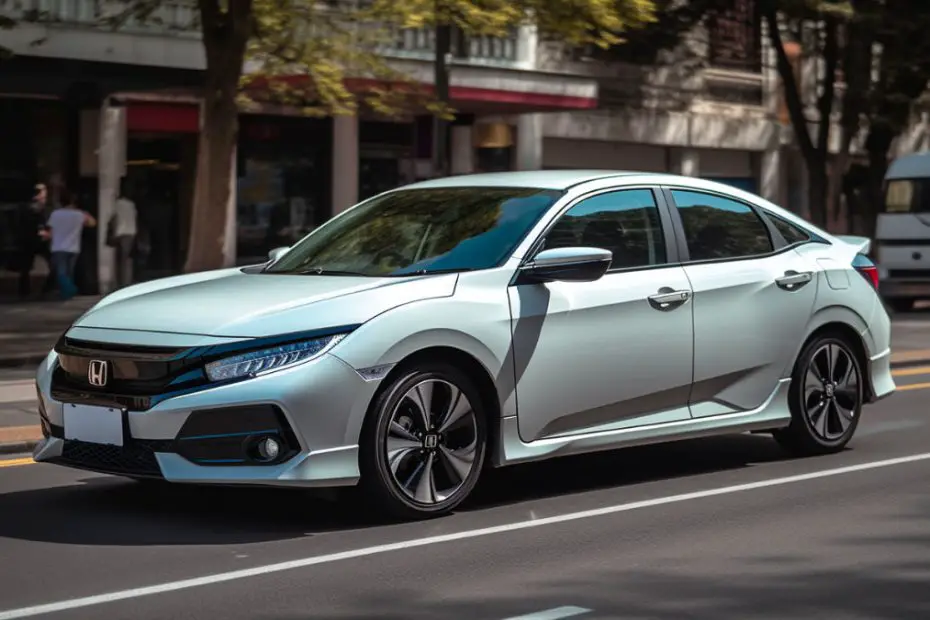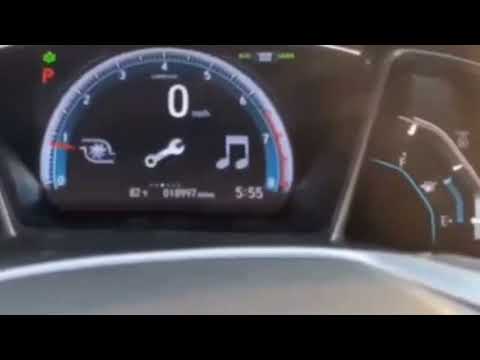Honda Civic is known for its reliability. However, it does develop some issues once; one is the engine doesn’t start with power on it, which can be stressful and frustrating.
But why Honda Civic won’t start while having power? It could be that the car battery is below the cranking voltage, the grounding is faulty, or the relays and fuse are blown. It might also be a starter motor, switch, or fuel problem. In the worse case, the problem may be caused by a mechanical issue.
Understanding how to troubleshoot and solve these issues can save you from all the frustration that comes with it. So, read on to learn more.
A Table Of The Reasons Why Honda Civic Won’t Start But Has Power
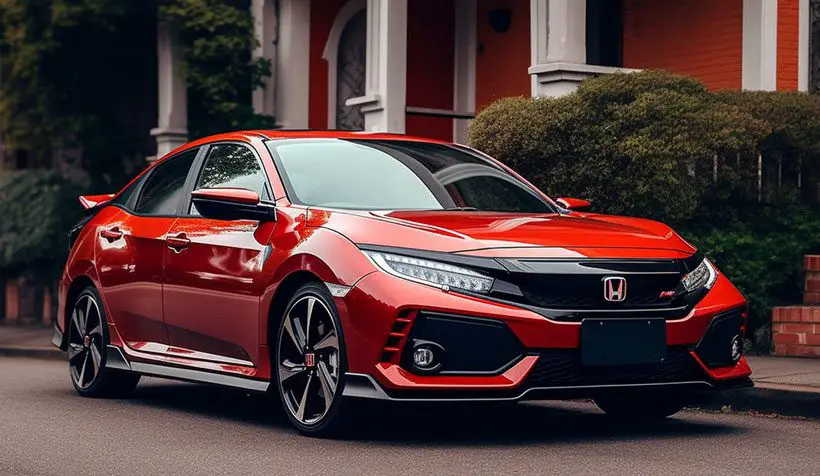
Look at the table below for a quick overview of the causes and fixes of the Honda Civic that doesn’t start but has power.
| Cause | Fix |
|---|---|
| A low or dying battery | Jumpstart the car and test the alternator. If it’s okay, replace the battery. |
| Faulty ground | Use your manual to locate the ground wire and ensure it’s in good condition and free of dirt, rust, and corrosion. |
| Blown fuses and relays | Replace the blown fuses and relays. |
| Faulty starter motor | Replace the starter motor. |
| Faulty starter switch | Replace the starter switch. |
| Fuel problems | Check for fuel, change the fuel filter, or troubleshoot the pump and its electrical components. |
| Mechanical issues | Inspect and replace the spark plugs, or take the vehicle to a Honda service center or a reputable technician for inspection and repairs. |
Honda Civic Won’t Start But Has Power: Possible Causes And How To Fix Them
Honda Civic is one of the most reliable sedans people can buy. It offers problem-free rides until it doesn’t start. While this is a common issue with many vehicles, it’s one of the few issues you’ll experience as a Honda Civic owner. However, it’s equally frustrating. So, what causes it, and how do you fix them? Here is a rundown of these issues and their solutions:
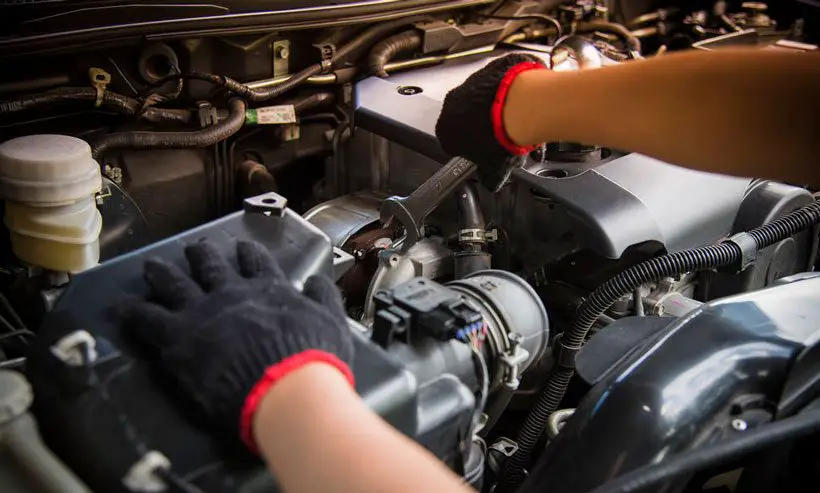
Low or Dying Battery
Typically, while your Honda Civic might have enough power to run the car’s accessories and the dash, it doesn’t mean it’s enough to start the engine. Typically, the starter requires high voltage supplied for a short period. So, your car battery must have enough voltage about 12.6 volts, a volt lower might not be enough to crank but it will power on the accessories.
Solution:
Use a multimeter to test the battery. If it shows less than 12.6 volts, jumpstart the car and test the alternator. The accessories and the lights should be on during the testing. If it shows less than 11.5 volts, the alternator is faulty and you’ll need to replace it. You might want to take it to a technician.
If the alternator is okay the battery is faulty and will need replacing. All you need is a 10-mil spanner to remove the old battery. Remember to start with the negative (black) terminal and move to the positive. Do the same when installing the new battery.
If the battery shows enough voltage, refer to your manual for the ideal CCA rating for your battery too. If the battery tester shows you lower amps than required, replace the battery – it’s dying.
Faulty Ground
Another thing, your car’s electrical system has to be grounded. If the grounding is not there or partial, your Civic will try to crank, but the engine won’t ignite. A ground connects the battery from the negative terminal to any metallic part of the car’s body.
Solution:
Use your manual to locate the ground wire and ensure it’s in good condition and free of dirt, rust, and corrosion. Honda Civic comes with several ground wires but the one you want to check out is that connected to the ECU. It’s a single wire that runs from the ECU to the car’s body. Clean it to remove rust and dirt preventing proper contact. If disconnected or broken, replace it.
Blown Fuses and Relays
Another issue that may cause your Honda not to start while it has power is a problem with the starting system fuses and relays. These components are designed to protect the car’s electrical system. If blown out, starter signals won’t reach the starter motor.
If you have a bad relay or fuse, you will hear a clicking sound when you turn on the ignition key. You can use a test light to test the fuse; a good one will light from both ends.
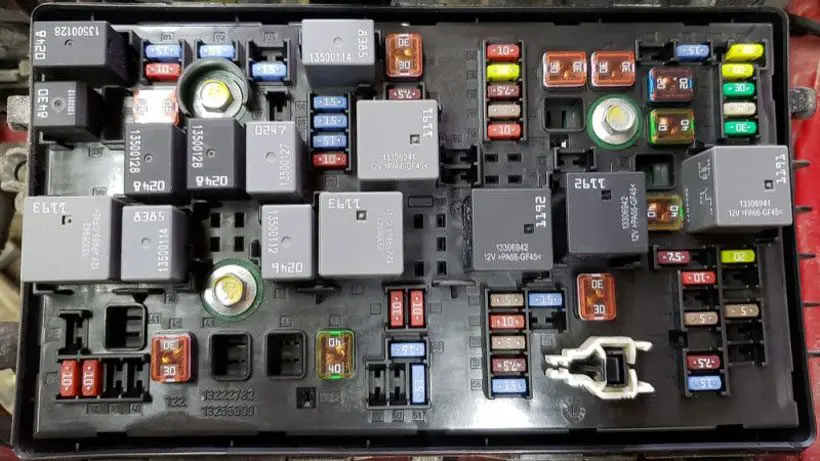
Solution:
The solution to the blown-out relays and fuses is to replace them. Replacing it is easy;
- Locate the starter relay by popping out the above pending. It’s black in color and on the right. Pluck it out using a screwdriver. Place in the new relay, and you’re good to go.
- Locate the starter fuse under the hood inside the fuse box. Use your manual or the details under the fuse box cover to pinpoint the starter fuse. Use needle nose pliers to pull it out – it should be easy. Replace it if need be.
Faulty Starter Motor
If nothing has worked so far, your starter motor might be dead. It’s quite a common issue with old Honda Civics. It might not be engaging properly or spinning fast enough. You will need to take it off to test it. Try tapping on the metal and start the car. If it starts, the motor is going bad.
Solution:
If the tapping helped start the car, replace the starter motor. You can also test it but you will need a good starter motor tester or unmount it for bench testing. The starter motor tester is easy to use using its manual.
Bench testing requires you to use jumper cables and a screwdriver or a wire. Connect the jumper cables to the charged car battery and connect the negative (black) to the starter body and the positive to the larger (screw) starter motor connector. Use a screwdriver or a wire to bridge the gap between the two connectors.
Here is a video demonstrating how to test a Honda Civic starter:
Faulty Starter Switch
It could also be that your starter switch is faulty. It could be rust, corrosion, or a loose connection. Whichever the reason, you need to check it out, especially if you’ve ruled out all the above issues.
Solution:
You can use a test light to test it. Touch any solid car body’s metal and yellow wire from the starter switch connector. If it lights up when you try to start the car, the starter switch is okay. If not, you will need to replace it. While you can do it yourself, there are a lot of technicalities involved here. So, it’d be best to take it to a qualified technician.
Fuel Problems
Do you have fuel? It might be basic, but it does happen. You might also be dealing with a clogged fuel filter. It may be causing your engine to try and start lean.
Another surprising cause of the Honda Civic not starting is water in the fuel. Typically, this would cause misfires, but it can still prevent the car from starting.
Another fuel-related component that can cause starting issues is the fuel pump. While it could be an issue with the fuel relays and fuse, it might also be wiring or the pump itself.
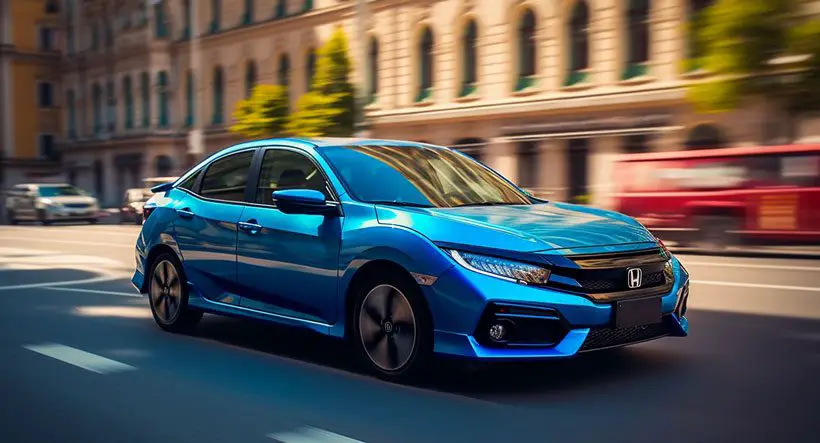
Solution:
Check you have fuel before starting the car. If you have enough fuel, try changing the fuel filter. All you need is a towel to soak sipping fuel and a 10-millimeter ratchet with a socket. You will also need a 14, 17, and 19-millimeter wrench. Use your manual to locate the fuel filter and carefully take it out and replace it.
If the car shows the engine check light when you put the key in the second position and you hear a clicking sound. But the light stays on and you don’t hear a second click, you have a fuel pump issue.
You’ll need to troubleshoot it and its electrical components, including the wiring and the relay. The relay is at the same spot as the starter relay. You can use the manual to pinpoint which one it is for your specific car model. Remove it and replace it.
If the relay is okay, you will need to check the voltage reaching the pump. However, you need to take the rear seat off to access the connector. All you need is to remove one (between the two seats) 10-mil bolt and it will be out.
Turn on the key and listen for the pump priming. If it’s not, check the voltage. Using a multimeter, ensure it is getting enough voltage, between 10-12 volts DC.
Touch the positive (red) lead to the red wire and the negative (black) lead to the ground (body.) If it’s zero or less, there is a wiring issue that a technician will need to troubleshoot and fix.
If the wiring is okay, but the pump isn’t priming when you turn on the key, you have a bigger problem – a failing or failed pump. You will need to remove and replace it. Unfortunately, this is another task that is best left to a pro considering you need to remove the entire fuel tank.
What if the pump is priming? You need to pressure test the fuel line. For that, you will need a fuel pressure testing kit. It will help you know if you have leaks. Follow the testing kit manual instruction for this.
Mechanical Issues
If your car cranks but doesn’t start, you may be dealing with a mechanical issue. It could be faulty spark plugs, a blown head gasket, or fuel injector problems.
Most of these issues will have manifested before your Civic decides not to start. A good example is shaking, rough idling, and stalling.
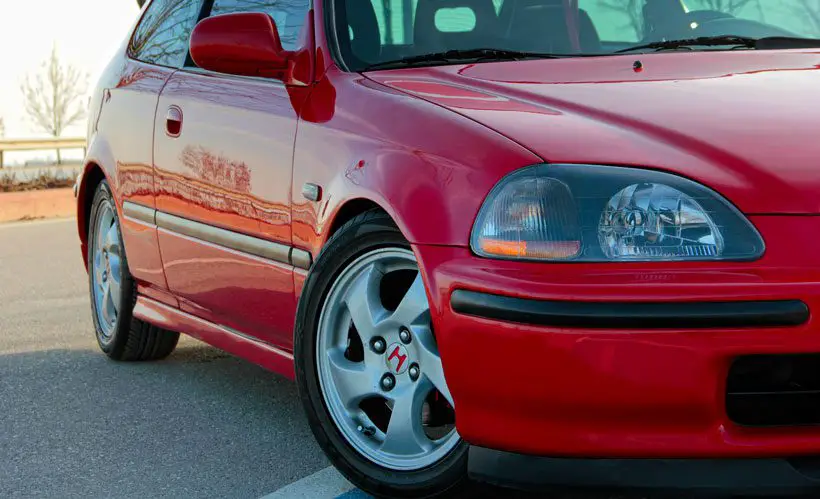
Solution:
Remove the spark plugs and inspect them. If you see black deposits on them or the gap seems bigger than recommended, replace them. You will need to first disconnect the connectors connecting to the ignition coils.
Once they are out, unscrew the 10-mil bolt and carefully remove the ignition coil. Using a spark plug wrench, remove the spark plugs and replace them. Reverse the steps and you’ll be good to go.
For the rest, take your vehicle to a Honda service center or a reputable technician for inspection and repairs.
Here is a video that takes you through most of these problems and how to fix them:
Frequently Asked Questions (FAQs)
Here are a few frequently asked questions about fixing Honda Civic won’t start but has power:
Plug the scan tool into the OBD-II port under your dashboard – it looks like a square socket with 16 pins. Turn the car’s ignition to the ON position (not start). The scan tool will connect and display any stored diagnostic trouble codes.
First, check your battery terminals for corrosion and have the battery tested. If the battery checks out, then you’ll likely need to replace either the starter solenoid, defective relay, or fuse
Conclusion
While a Honda Civic is reliable, it can still experience starting issues. As discussed, there are numerous ‘Honda Civic won’t start but has power’ problem causes, from basic electrical issues to complex mechanical failures. Systematic troubleshooting is the key to resolving the problem, starting with the simplest and most common causes.
If those checks don’t reveal the root cause, slowly work through the other possibilities until you identify the issue. But, of course, proper maintenance and repairs will ensure your Civic runs well for many years to come.
